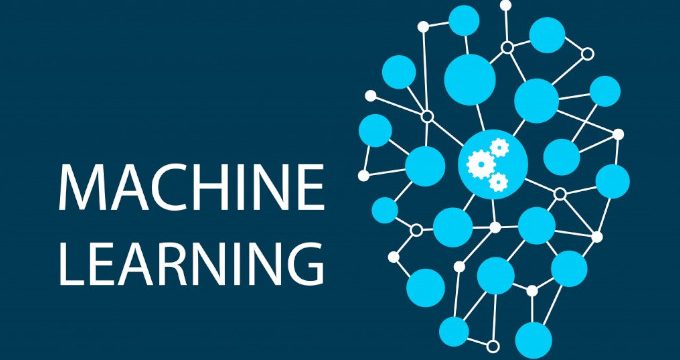Keeping track of every buzzword appearing on the IT scene might be time consuming, but it’s ultimately worth the effort. From a business perspective, recognizing the transformative potential of a particular technology is imperative for gaining competitive edge and retaining market share. As a manager/business owner you need to keep your hand on the pulse when it comes to disruptive technologies. In this article we will explore Machine Learning and how you can use it to power your business.
Machine Learning is a term loosely associated with artificial intelligence: in fact, it is one of the AI practical applications. As the name implies, and what most non-technicians would suggest, ML describes the capacity of machines to self-learn and make decisions. In other words, Machine Learning uses a model or an algorithm to recognize certain patterns in big data and make predictions based on them.
When Should You Use Machine Learning?
Have you ever wondered how Facebook and LinkedIn seem to know exactly what’s on your mind and show you ads that match your interests? That’s one of the examples of Machine Learning in action. ML algorithms analyze your online behavior and search patterns to predict what could possibly be your next step. More specifically, here’s what Machine Learning can do:
– Detect and categorize similar objects
– Identify similar patterns and predict actions and outcomes based on them
– Identify previously unknown patterns and how they interrelate
– Identify anomalies and deviations from usual behaviour
Machine learning is not limited to merely one algorithm: a range of them is required to perform different actions. What they have in common, though, is the learning capability – the system learns and improves based on the incoming data.
The problems Machine Learning helps tackle are as follows:
– Problems to which logical rules can’t be applied because they are either unavailable or insufficient. However, the rules can be figured out intuitively.
– The best outcome for a particular action will vary depending on changing circumstances which are difficult to predict in advance.
– Traditional analytic methods don’t apply.
– The accuracy of the outcome is more important than understanding the underlying rationale.
On a daily basis, we may not even realise the extent to which Machine Learning pervades our lives. From smartphone features like face recognition, smart cameras and virtual assistants to web services like Google Maps and transport services like Uber and Lyft, ML is now routinely used by most of the world population.

ML Applications by Industry
Below we will examine how various industries are applying machine learning to digitally transform their businesses:
ML in Banking has a range of use cases. The most vivid ones include credit card fraud detection: by recognizing patterns that deviate from the established norm, ML algorithms help detect fraudulent activity and protect credit card users. Fintech is also actively using Machine Learning to offer customers personalization banking services based on recommendation engines.
In Retail industry marketers use Machine Learning to track prices of competitors and automatically come up with attractive offerings. Demand forecasting, logistics and warehousing, churn prediction and sentiment analysis are other prominent examples of using ML in retail. In online retail, chatbots and virtual assistance often help collect customer data for further processing by ML algorithms that further enable retailers to come up with personalized offerings. Retail giants like Amazon, Walmart, Target and Alibaba are using ML to power their operations.
In the Energy sector the use of Machine Learning is tightly interconnected with the Internet of Things. While IoT devices and sensors help capture and aggregate data, ML algorithms track patterns in it and process it to derive insights. Applications of ML include detecting anomalies in energy consumption, demand prediction, price calculation, etc. As such, ML is helping energy companies save costs and be more environmentally-friendly.
In Manufacturing, the application of Machine Learning is having a truly revolutionary effect. Specifically, asset management, supply chain management and inventory management are areas which benefit most from applying machine learning. Another example of ML use in manufacturing is predictive maintenance: ML helps repair factory machinery in a timely manner and reduce operational downtime.
In Healthcare, ML is helping improve the accuracy of diagnostics since it is capable to identify diseases which are normally difficult to detect. ML is also widely applied in pharmaceutical R&D to help invent new generic drugs. For example, funded by Microsoft and powered by AI and ML, Project Hanover helps develop schemes for cancer treatment and personalized medicine.
Computer Vision technology, driven by both Machine Learning and Deep Learning, has become a true breakthrough in medical image analysis and diagnostics. AT VARTEQ we have used Computer Vision to build tools for medical image analysis to assist radiologists and medical scanning experts in making accurate diagnosis and manage patients’ records.
In Agriculture, Machine Learning and IoT are major driving forces towards adopting smart farming practices. For example, in crop farming IoT sensors help collect metrics on weather and soil conditions. Based on this data, ML algorithms help create optimal irrigation and fertilization plans for plants. ML algorithms are also used to predict yields, manage crop quality, fight and detect pest and weed infestation, etc. Similarly, ML is applied to forecast the efficiency of livestock farming, in predictive maintenance of farming machinery and end-to-end farm management.
Apart from industry specifics, each business is unique, though. At VARTEQ we are offering custom-tailored solutions and will start with getting to know your organization, its current challenges, bottlenecks and peculiarities of its ecosystem. Have an idea that you know could propel your business? Contact our experts now and request a free consultation!

